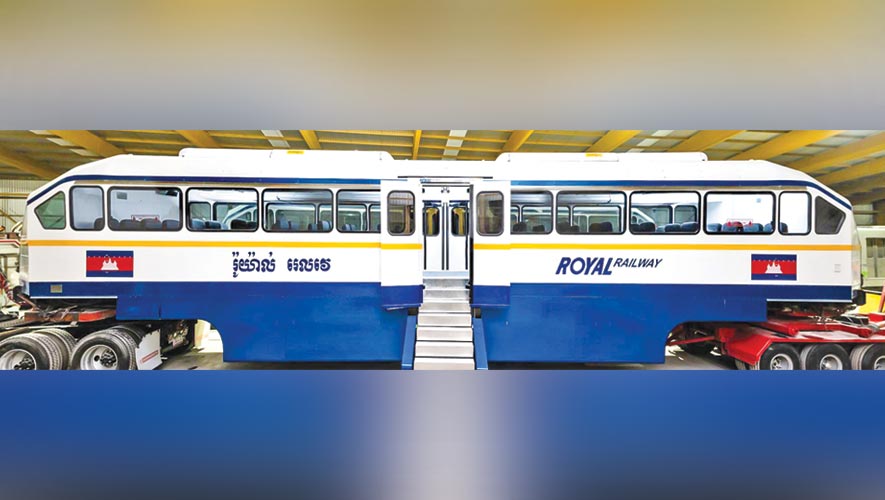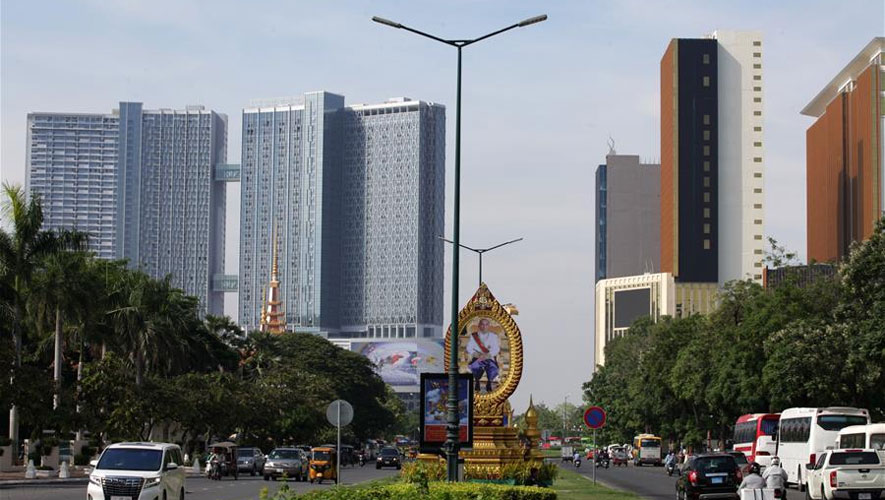Royal government encourages further partnerships to develop tracks in search of more value
For the latest Cambodian Business news, visit Khmer Times Business
Recent headlines highlight the collaboration between Cambodia and China on revamping the nation’s train tracks, with a team from the China Railway Construction Corporation (CRCC) coming to the Kingdom to begin a feasibility study to further improve services.
This comes after the Prime Minister’s request for a more efficient local railway system, which he had made during the Belt and Road Initiative (BRI) forum that took place in Beijing earlier this year.
A representative from CRCC mentioned that the team will carry out additional studies as well, on a monorail and a subway project, in order to improve the state of public transport in the capital.
The government welcomed this news because the railway sector has not seen major improvements over the last 10 years. The Kingdom has two rail lines: the southern line, connecting Phnom Penh and Sihanoukville and the northern one, linking the capital to Poipet, Thailand.
Discussions taking place
Ly Borin, the undersecretary of state of the Ministry of Public Works and Transport, says both Cambodian and Thai counterparts have been undergoing discussions on procedures for train travel between the two nations.
“We had discussions again early last month on the matter. The issue at the moment is the diesel multiple unit (DMU) that was given by Thailand. We would have to conduct training on how to use the unit,” says Borin.
The DMU was a donation from Thailand and is a multiple-unit train powered by on-board diesel engines that requires no separate locomotive.
Borin added that most Cambodians tend to go to Thailand for medical checkups, while Thais come to the Kingdom for tourism, especially to visit the Angkor Wat temples. He hopes for more visitor traffic between both countries.
While railway transport is seen as a means to boost tourism in the country, Top Sopheak, spokesperson for the Ministry of Tourism, says this form of transportation is not a common choice among Cambodians at the moment.
Collaboration with the Royal Group to boost tourism via trains has been added as one of the ministry’s efforts in the Tourism Master Plan. However, Sopheak says facilities must be improved before they can proceed.
Once work on the railway tracks is completed, the trains are expected to transport passengers and goods. Trade between both nations is expected to be boosted, with governments on each side aiming at 15 million dollars in bilateral trade by 2020.
“We are currently working with the CRCC. The Royal Government wants two railway operators hence they want more operators to cooperate with the Royal Railway,” he says.
Meeting to address issues
According to the undersecretary of state, the government will act as facilitator between both parties and a meeting will be called to address certain issues. The railways operator has reported that they do not see much cargo to carry via train. Meanwhile exporters would like train operators to be more active on the transport side of business.
The government is deciding on a compromise deal while encouraging the Royal Railway Group to invest more in the engines for a smoother performance.
“The trains carry 1,000 tons one way. If the trains were to also transport petroleum, for instance, it would cut the distance used by 100 trucks instead,” Borin says. He also says this could reduce traffic jams and accidents as well as reduce the overloading of trucks on roads.
Currently, the trains mostly carry construction materials from the port, agricultural produce and other local goods. The Ministry of Works and Transport says when the railways are able to run faster, this would save time. It predicts more passengers will use the trains.
The Royal Railway train currently only runs during the weekend and there is no current news regarding changes of schedules to include weekdays.




